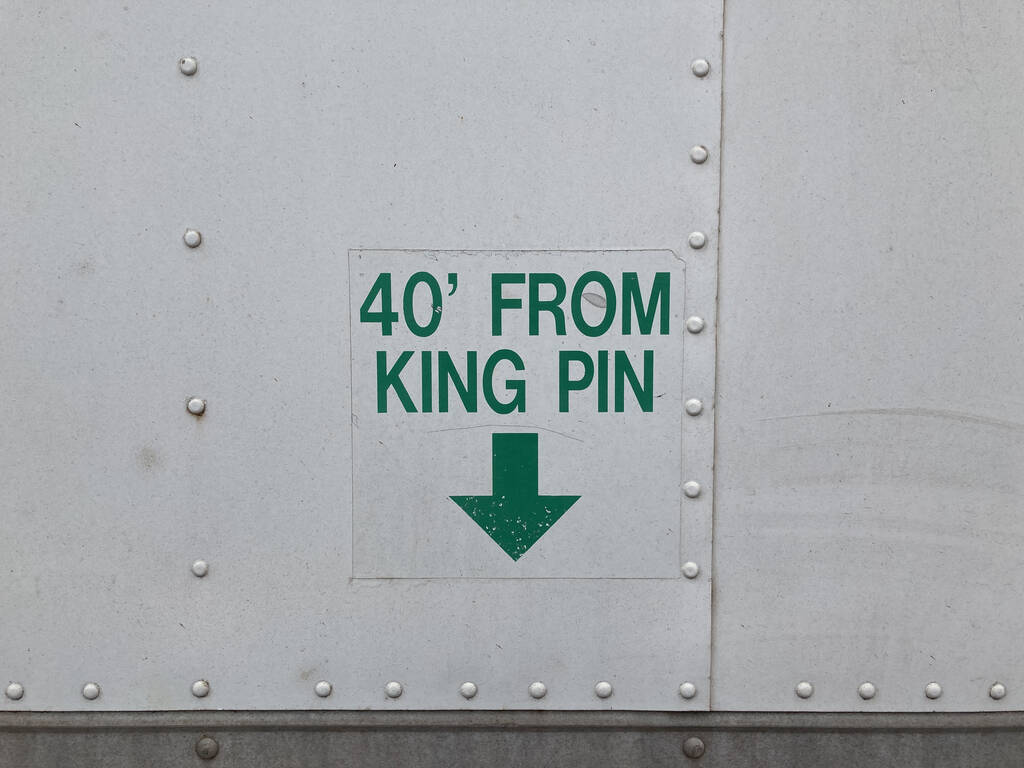On our way over the Hillsborough Bridge on Boxing Day, I took this photo of the side of a semi-trailer parked on the trail construction site.

Following up later in the day, I fell down a fascinating rabbit hole, learning about the “king pin to rear axle distance,” and why this is important.
The “king pin” is the place where the trailer attaches to the truck pulling it. The 40 foot distance is important (and thus labelled) because in California there’s a regulation, known colloquially as the “Bridge Law,” that on a typical 53 foot trailer, the maximum distance from the king pin to the rear axle is 40 feet, and the weight over the axles cannot be more than 34,000 pounds.
The 40 foot distance varies from jurisdiction to jurisdiction; California’s in the shortest limit, and thus a kind of effective baseline.
 I am
I am
Comments
So is that trailer too long
So is that trailer too long to drive into California? I can’t tell if it’s fore or aft of the rear axle
The reason for the label is
The reason for the label is to guide drivers as to the maximum distance they can slide the rear wheels back (the wheels at the back, I have learned, are adjustable). So “it depends” is the answer, I think.
The trailer isn't the
The trailer isn't the question. It is a 53' trailer thereby legal. The 40' mark is for ease of setting the rear axle for compliance. If the rear axle is at that mark and the weight is above 34,000 lbs then the load isn't loaded legal. This goes against the driver and company.
Ok I understand this but why
Ok I understand this but why is it called a bridge law and what is its purpose.
If it's called that because of the length of the separation of the axles and how sharp you need to turn on the non interstate roads which makes the most sense seeing as the rest areas in Indiana if you pull in with them more than 41 ft apart you will not get in.
Or is it because of the way the bridges are designed in the state that you travel trough and how much weight it can hold which doesn't make sense at all seeing as CA and IN both have 41ft in between the axles and the closer you move them together the more stress you would possibly be putting on a section of bridge.
I also heard this only applies to non-interstate travel is this true
This is mixing up 2 different
This is mixing up 2 different things. the 40ft rule is so that there is enough space to manoeuvre the tractor-trailer through various roads and intersection.
Bridge law is based on allowable weight that the interstate highway bridges can support so the further you spread out your axles the more weight they allow since you would then not overstress the bridge supports. Many states allow higher weights and have their own limits but they are built around bridge law(for the most part) and are just an extension of this, but the federal bridge law still applies on all interstates
Add new comment